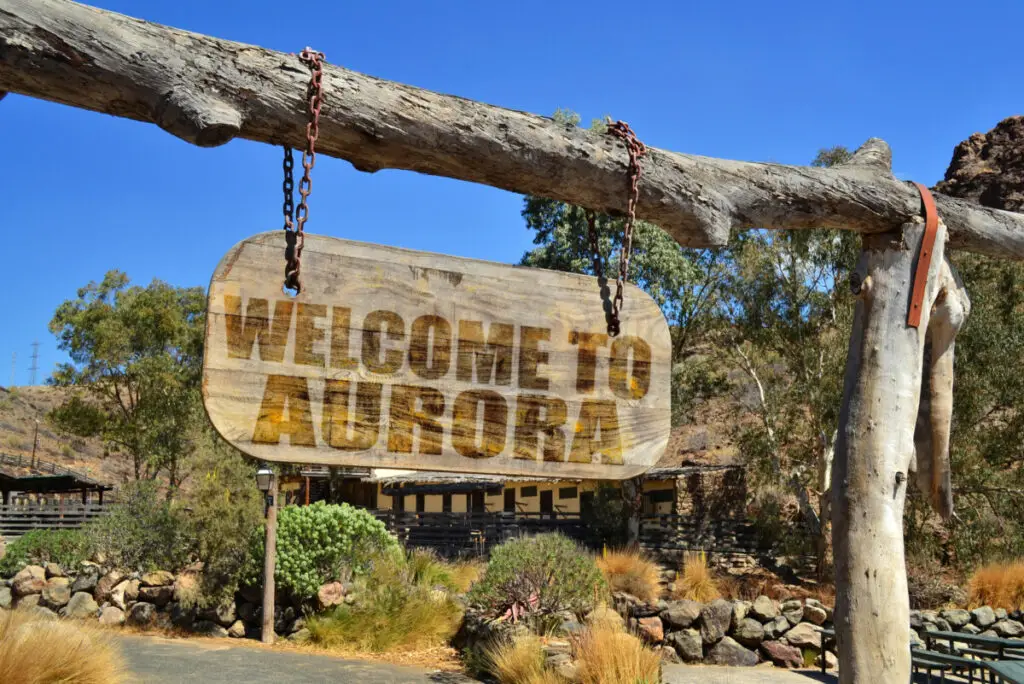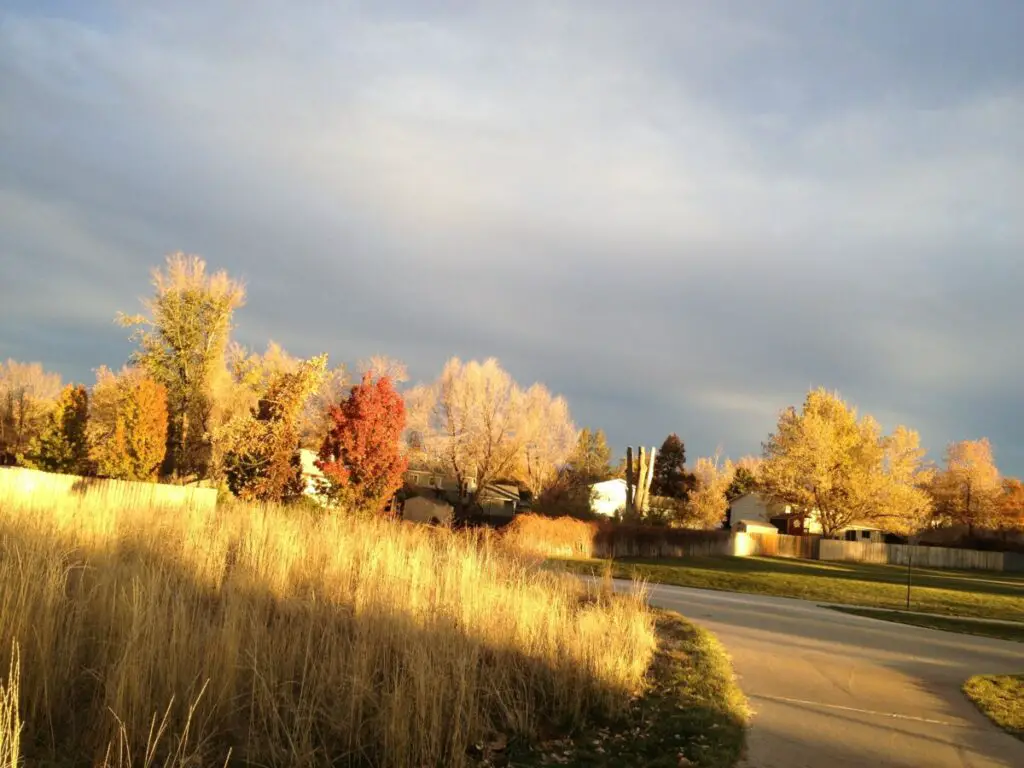
Politics is a major source of conflict in our lives, and many people want to live near people who tend to have the same political beliefs as them. Are the residents of Aurora, Colorado more likely to be liberal or conservative?
Aurora, CO is a fairly liberal city. The city voted for the Democratic candidate in four of the last six presidential elections. Arapahoe County, Aurora’s county, is also fairly liberal, and Colorado is a swing state that leans more liberal than conservative.
There are a lot of factors that have to do with the political climate of a city. To figure out if Aurora is a liberal or conservative city, we need to look at the result of presidential elections in the city, the local leaders, the policies that residents support, and the demographics. Keep reading to find out more!
Presidential Elections
The result of the presidential elections in the city is a big indicator of the city’s political climate. The two major political parties in the United States represent the liberal and conservative points of view. The members of the Democratic party tend to be liberal, and the party supports liberal policies; if most of the residents of Aurora voted for the Democratic candidate, the city is mostly liberal. The Republican party has largely conservative members and supports conservative policies; Aurora is mostly conservative is most of the residents voted for the Republican candidate.
The winner of the election in the city is not the only thing that should be considered. It is also important to see how much they won. The difference between the percentage of the votes that are Republican and those that are Democratic is the main way to look at this. If the difference is high, the candidate won by a lot of votes, and the city is solidly liberal or conservative. If the difference is low, the city is closer to being evenly split.
Colorado is a swing state . Most states can be counted on to vote either Democratic or Republican, but swing states can potentially go either way, and Colorado tends to lean toward liberal rather than conservative. The president is usually elected based on the results of the elections in those states.
. Most states can be counted on to vote either Democratic or Republican, but swing states can potentially go either way, and Colorado tends to lean toward liberal rather than conservative. The president is usually elected based on the results of the elections in those states.
Colorado leans more liberal than conservative, though it is still a swing state. The state voted for the Republican candidate in 2000 and 2004, but the Democratic candidate got the most votes in Colorado every year since then. What makes Colorado a swing state is the fact that the difference between the percentage of Democratic and Republican votes tends to be low in every election. In all the elections but one, the difference was less than 10%. The highest difference was 13.5% in 2020, and the lowest was 4.7% in 2004.
In the 2020 election, 55.4% of Colorado residents voted for the Democratic candidate and 41.9% voted for the Republican candidate. The difference was 13.5%, the highest it had been in 20 years.
Arapahoe County, the county in which Aurora is, is fairly liberal . The majority of residents of Arapahoe County voted for the Democratic candidate in four of the last six elections. The differences between the percentages were between 5% and 15% every year except in 2004 and 2020. In 2004, the difference was at an all-time low of 3.97%. In 2020, it reached an all-time high of 24.64%.
. The majority of residents of Arapahoe County voted for the Democratic candidate in four of the last six elections. The differences between the percentages were between 5% and 15% every year except in 2004 and 2020. In 2004, the difference was at an all-time low of 3.97%. In 2020, it reached an all-time high of 24.64%.
In the 2020 election, 61% of the vote went toward the Democratic candidate, and 36.36% was for the Republican candidate. The difference of 24.64% was the highest it has gotten since 2000.
Aurora, like the county and similar to the state, is fairly liberal . In 2000 and 2004, the city voted for the Republican candidate. However, in the last four elections, the Democratic candidate won over the city. The difference between the percentages of Democratic and Republican votes was less than 10% in 2000, 2004, and 2012, but was higher than 10% every other year. The percentages and differences are comparable to those of Arapahoe County.
. In 2000 and 2004, the city voted for the Republican candidate. However, in the last four elections, the Democratic candidate won over the city. The difference between the percentages of Democratic and Republican votes was less than 10% in 2000, 2004, and 2012, but was higher than 10% every other year. The percentages and differences are comparable to those of Arapahoe County.
From 2018 to 2021, there were 46,150 contributions to the Democratic party in Aurora. This added up to $5,684,212. In that same time frame, there were 11,930 contributions to the Republican party, totaling $2,999,981. The donations to the Republican party were about 2 times higher on average than those to the Democratic party.
Local Leaders

The local leaders in a city represent the city’s political climate. These are leaders that the people elected to represent based on their promises and beliefs. Looking at the party affiliations, enacted policies, and campaign platforms of the local leaders of Aurora can help us to know if the city is liberal or conservative.
Mayor
The mayor of Aurora is one of the most important elected officials. The mayor represents the city in larger matters. The mayor also directs the meetings of the city council and city ceremonies.
The current mayor of Aurora is Mike Coffman . He was elected in 2019 and will serve until 2023. He won the general election narrowly with 35.8% of the vote. His victory was only by 214 votes.
. He was elected in 2019 and will serve until 2023. He won the general election narrowly with 35.8% of the vote. His victory was only by 214 votes.
Before being mayor, Coffman was a member of both the Colorado House of Representatives and the State Senate. He was the Colorado Treasurer and Secretary of State.
Mayor Coffman is a member of the Republican party. His time in the House of Representatives and the State Senate was as a Republican representative. The policies that he supports further show that he is of a conservative mindset.
City Council
The Aurora City Council is responsible for adopting the budget, approving appointments made by the mayor, imposing taxes, and creating or changing laws. There are eleven members of the City Council including the mayor. The mayor and four other members of the City Council are elected by the whole city. The other six members are each elected by one of the six wards of the city.
is responsible for adopting the budget, approving appointments made by the mayor, imposing taxes, and creating or changing laws. There are eleven members of the City Council including the mayor. The mayor and four other members of the City Council are elected by the whole city. The other six members are each elected by one of the six wards of the city.
The members of the city council are nonpartisan, but the committees and policies that the city council supports suggest a fairly conservative city council.
Policies
The policies that the residents of the city support are another indicator of the political climate. Certain policies are more likely to be supported or opposed by liberals or conservatives. Fewer abortion laws, more gun control laws, and legal same-sex marriage are all more likely to be supported by liberals and opposed by conservatives.
Abortions
Abortions in Colorado must be performed before 22 weeks . Insurance policies for public employees and public funding cannot cover abortions, though health plans and private insurance policies can. There are no counseling or ultrasound requirements before abortions. Parents of a minor must be notified before the minor can receive an abortion, but the consent of the parents is not required.
. Insurance policies for public employees and public funding cannot cover abortions, though health plans and private insurance policies can. There are no counseling or ultrasound requirements before abortions. Parents of a minor must be notified before the minor can receive an abortion, but the consent of the parents is not required.
In 2017, there were 32 facilities in Colorado that provide abortions, 18 of which were clinics. This is a 14% decrease from 2014. 80% of counties did not have a clinic, leaving 27% of women without access to a clinic.
Aurora residents tend to agree with the low number of abortion laws in place.
Gun Control
In 2020, Colorado had the 22nd highest gun death rate and the 21st highest crime gun export rate in the United States. Colorado gun laws include universal background checks, domestic violence gun laws, a large-capacity magazine ban, child access prevention laws, state database background checks with an extended waiting period, disarming procedures, and lost/stolen firearm reporting. Colorado gun laws do not include gun owner licensing, assault weapon restrictions, waiting periods, or strong concealed or open carry regulations.
universal background checks, domestic violence gun laws, a large-capacity magazine ban, child access prevention laws, state database background checks with an extended waiting period, disarming procedures, and lost/stolen firearm reporting. Colorado gun laws do not include gun owner licensing, assault weapon restrictions, waiting periods, or strong concealed or open carry regulations.
Aurora residents tend to agree with the relatively high number of gun control laws.
Same-Sex Marriage
Same-sex marriage was legalized in Colorado on October 7, 2014 , and was the 25th state to do so. This was eight months before the Supreme Court mandate required all states to legalize same-sex marriage. Aurora residents tended to support the legalization of same-sex marriage.
, and was the 25th state to do so. This was eight months before the Supreme Court mandate required all states to legalize same-sex marriage. Aurora residents tended to support the legalization of same-sex marriage.
Demographics

The population of Aurora is 387,377 people. The population density is 2,523 people per square mile. 51.2% of the population is female and 48.9% is male. The median age is 33.4, and the average number of people per household is 2.7.
of Aurora is 387,377 people. The population density is 2,523 people per square mile. 51.2% of the population is female and 48.9% is male. The median age is 33.4, and the average number of people per household is 2.7.
The racial makeup in Aurora is as follows:
in Aurora is as follows:
- White: 45.6%
- Black: 15.3%
- Hispanic/Latino: 28.6%
- Asian: 5.9%
- Native American: 0.4%
- Hawaiian/Pacific Islander: 0.3%
- Two or More Races: 3.5%
- Other: 0.4%
The average income in Aurora is $24,732 per year. The median household income is $52,275 per year. The unemployment rate is 7.6%. The sales tax rate is 8.0% and the income tax rate is 4.7%.
in Aurora is $24,732 per year. The median household income is $52,275 per year. The unemployment rate is 7.6%. The sales tax rate is 8.0% and the income tax rate is 4.7%.
87% of Aurora residents are high school graduates, and 22.9% are only high school graduates. 19.4% of residents have two-year degrees, 28.5% have four-year degrees, 1.2% have master’s degrees, and 0.9% have professional degrees.
of Aurora residents are high school graduates, and 22.9% are only high school graduates. 19.4% of residents have two-year degrees, 28.5% have four-year degrees, 1.2% have master’s degrees, and 0.9% have professional degrees.
30.5% of aurora residents are religious. 29.4% are Christian, 0.0% are Jewish, 1.0% are of eastern faith, and 0.1% are affiliated with Islam.
of aurora residents are religious. 29.4% are Christian, 0.0% are Jewish, 1.0% are of eastern faith, and 0.1% are affiliated with Islam.
The rate of violent crime in Aurora on a scale of 1 to 100 is 29.6. The rate of property crime on the same scale is 43.5.
in Aurora on a scale of 1 to 100 is 29.6. The rate of property crime on the same scale is 43.5.
